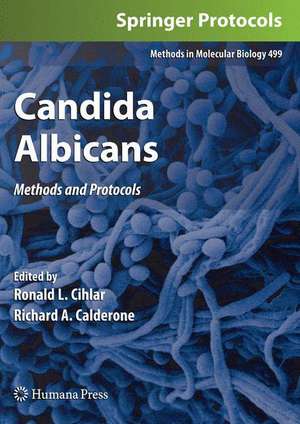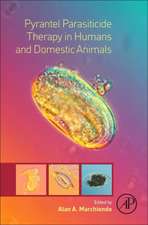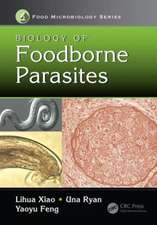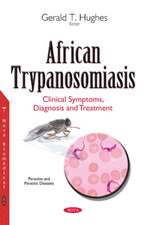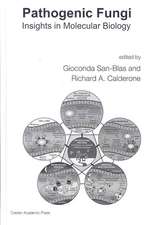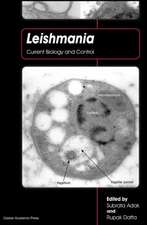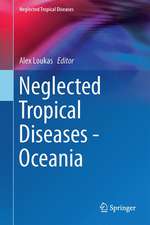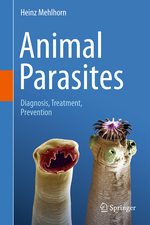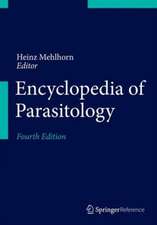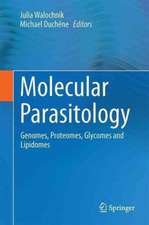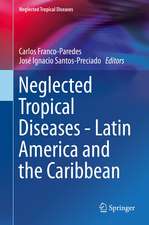Candida Albicans: Methods and Protocols: Methods in Molecular Biology, cartea 499
Editat de Ronald L. Cihlar, Richard A. Calderoneen Limba Engleză Hardback – 5 feb 2009
Authoritative and cutting edge, Candida Albicans: Methods and Protocols is an invaluable source of methods for investigators in the exhilarating fields of medical and molecular mycology.
| Toate formatele și edițiile | Preț | Express |
|---|---|---|
| Paperback (1) | 944.99 lei 6-8 săpt. | |
| Humana Press Inc. – 19 noi 2010 | 944.99 lei 6-8 săpt. | |
| Hardback (1) | 796.03 lei 38-44 zile | |
| Humana Press Inc. – 5 feb 2009 | 796.03 lei 38-44 zile |
Din seria Methods in Molecular Biology
- 9%
 Preț: 791.59 lei
Preț: 791.59 lei - 23%
 Preț: 598.56 lei
Preț: 598.56 lei - 20%
 Preț: 882.95 lei
Preț: 882.95 lei -
 Preț: 252.04 lei
Preț: 252.04 lei - 5%
 Preț: 802.69 lei
Preț: 802.69 lei - 5%
 Preț: 729.61 lei
Preț: 729.61 lei - 5%
 Preț: 731.43 lei
Preț: 731.43 lei - 5%
 Preț: 741.30 lei
Preț: 741.30 lei - 5%
 Preț: 747.16 lei
Preț: 747.16 lei - 15%
 Preț: 663.45 lei
Preț: 663.45 lei - 18%
 Preț: 1025.34 lei
Preț: 1025.34 lei - 5%
 Preț: 734.57 lei
Preț: 734.57 lei - 18%
 Preț: 914.20 lei
Preț: 914.20 lei - 15%
 Preț: 664.61 lei
Preț: 664.61 lei - 15%
 Preț: 654.12 lei
Preț: 654.12 lei - 18%
 Preț: 1414.74 lei
Preț: 1414.74 lei - 5%
 Preț: 742.60 lei
Preț: 742.60 lei - 20%
 Preț: 821.63 lei
Preț: 821.63 lei - 18%
 Preț: 972.30 lei
Preț: 972.30 lei - 15%
 Preț: 660.49 lei
Preț: 660.49 lei - 5%
 Preț: 738.41 lei
Preț: 738.41 lei - 18%
 Preț: 984.92 lei
Preț: 984.92 lei - 5%
 Preț: 733.29 lei
Preț: 733.29 lei -
 Preț: 392.58 lei
Preț: 392.58 lei - 5%
 Preț: 746.26 lei
Preț: 746.26 lei - 18%
 Preț: 962.66 lei
Preț: 962.66 lei - 23%
 Preț: 860.21 lei
Preț: 860.21 lei - 15%
 Preț: 652.64 lei
Preț: 652.64 lei - 5%
 Preț: 1055.50 lei
Preț: 1055.50 lei - 23%
 Preț: 883.85 lei
Preț: 883.85 lei - 19%
 Preț: 491.88 lei
Preț: 491.88 lei - 5%
 Preț: 1038.84 lei
Preț: 1038.84 lei - 5%
 Preț: 524.15 lei
Preț: 524.15 lei - 18%
 Preț: 2122.34 lei
Preț: 2122.34 lei - 5%
 Preț: 1299.23 lei
Preț: 1299.23 lei - 5%
 Preț: 1339.10 lei
Preț: 1339.10 lei - 18%
 Preț: 1390.26 lei
Preț: 1390.26 lei - 18%
 Preț: 1395.63 lei
Preț: 1395.63 lei - 18%
 Preț: 1129.65 lei
Preț: 1129.65 lei - 18%
 Preț: 1408.26 lei
Preț: 1408.26 lei - 18%
 Preț: 1124.92 lei
Preț: 1124.92 lei - 18%
 Preț: 966.27 lei
Preț: 966.27 lei - 5%
 Preț: 1299.99 lei
Preț: 1299.99 lei - 5%
 Preț: 1108.51 lei
Preț: 1108.51 lei - 5%
 Preț: 983.72 lei
Preț: 983.72 lei - 5%
 Preț: 728.16 lei
Preț: 728.16 lei - 18%
 Preț: 1118.62 lei
Preț: 1118.62 lei - 18%
 Preț: 955.25 lei
Preț: 955.25 lei - 5%
 Preț: 1035.60 lei
Preț: 1035.60 lei - 18%
 Preț: 1400.35 lei
Preț: 1400.35 lei
Preț: 796.03 lei
Preț vechi: 1047.40 lei
-24% Nou
Puncte Express: 1194
Preț estimativ în valută:
152.32€ • 159.46$ • 126.03£
152.32€ • 159.46$ • 126.03£
Carte tipărită la comandă
Livrare economică 01-07 aprilie
Preluare comenzi: 021 569.72.76
Specificații
ISBN-13: 9781588297600
ISBN-10: 1588297608
Pagini: 195
Ilustrații: X, 206 p. 28 illus.
Dimensiuni: 190 x 260 x 17 mm
Greutate: 0.61 kg
Ediția:2009
Editura: Humana Press Inc.
Colecția Humana
Seria Methods in Molecular Biology
Locul publicării:Totowa, NJ, United States
ISBN-10: 1588297608
Pagini: 195
Ilustrații: X, 206 p. 28 illus.
Dimensiuni: 190 x 260 x 17 mm
Greutate: 0.61 kg
Ediția:2009
Editura: Humana Press Inc.
Colecția Humana
Seria Methods in Molecular Biology
Locul publicării:Totowa, NJ, United States
Public țintă
ResearchCuprins
Immunogical Methods.- Isolation of Dendritic Cells from Human Blood for In Vitro Interaction Studies with Fungal Antigens.- Detection and Quantitation of Antifungal SIgA Antibodies in Body Fluids.- Phagocytosis and Killing Assays for Candida Species.- Immunization Protocols for Use in Animal Models of Candidiasis.- Virulence and Biofilms.- Penetration of Antifungal Agents Through Candida Biofilms.- Candida Biofilm Analysis in the Artificial Throat Using FISH.- Conditions for Optimal Candida Biofilm Development in Microtiter Plates.- Virulence Measurements: In vitro, ex vivo, and in vivo.- Animal Models of Candidiasis.- Candida albicans Gene Expression in an In Vivo Infection Model.- In Vitro and Ex Vivo Assays of Virulence in Candida albicans.- Strain Typing and Identification.- Biotyping of Candida albicans and Other Fungi by Yeast Killer Toxins Sensitivity.- DNA Fingerprinting Candida Species.- Genomics and Proteomics.- The Application of Tandem-Affinity Purification to Candida albicans.- Preparation of Samples for Proteomic Analysis of the Candida albicans Cell Wall.- Reporter Gene Assays in Candida albicans.- Genetic Transformation of Candida albicans.- Large-Scale Gene Disruption Using the UAU1 Cassette.- Standard Growth Media and Common Techniques for Use with Candida albicans.
Recenzii
From the reviews:
"This small book is directed specifically to researchers involved in the study of yeast associated with human disease. … this book will be used by scientists and students in the field of fungal and yeast research. … This compact book … would clearly be a good investment for scientists studying or teaching about Candida species and virulence in humans. Another positive attribute is its small size, which makes it easy to carry around and fit on a lab bench." (Rebecca T. Horvat, Doody’s Review Service, June, 2009)
"Human pathogenic fungi, especially Candida albicans, are significant opportunist pathogens of immunocompromised and medically compromised patients. … This book contains 18 succinct chapters that focus on … important aspects of molecular methodology. … Each chapter contains concise protocols, together with a useful Notes section providing tips on troubleshooting. This book will be a useful resource for researchers who work in the field. It is … a worthwhile institutional purchase." (David Coleman, Microbiology Today, November, 2009)
"This small book is directed specifically to researchers involved in the study of yeast associated with human disease. … this book will be used by scientists and students in the field of fungal and yeast research. … This compact book … would clearly be a good investment for scientists studying or teaching about Candida species and virulence in humans. Another positive attribute is its small size, which makes it easy to carry around and fit on a lab bench." (Rebecca T. Horvat, Doody’s Review Service, June, 2009)
"Human pathogenic fungi, especially Candida albicans, are significant opportunist pathogens of immunocompromised and medically compromised patients. … This book contains 18 succinct chapters that focus on … important aspects of molecular methodology. … Each chapter contains concise protocols, together with a useful Notes section providing tips on troubleshooting. This book will be a useful resource for researchers who work in the field. It is … a worthwhile institutional purchase." (David Coleman, Microbiology Today, November, 2009)
Textul de pe ultima copertă
Over the course of the past decade, there have been remarkable advances in the study of human pathogenic fungi. These developments have taken place throughout a wide range of disciplines, and have come as the result of newly available genome sequences of pathogens such as candida albicans and other model fungi. In Candida Albicans: Methods and Protocols, expert researchers explore these exciting new insights, focusing on the study of medically important fungi and Candida spp in particular. Chapters examine critical aspects of molecular methods, providing information on reporter gene assays, transformation, gene expression in vivo, and methods for large-scale gene disruption. At the same time, the work includes in-depth descriptions of disease models of candidiaisis, facts about strain identification, and guidelines on the preparation of samples for proteomic investigations and tandem affinity purification. Composed in the highly successful Methods in Molecular Biology™ series format, each chapter contains a brief introduction, step-by-step methods, a list of necessary materials, and a Notes section which shares tips on troubleshooting and avoiding known pitfalls.
Authoritative and cutting edge, Candida Albicans: Methods and Protocols is an invaluable source of methods for investigators in the exhilarating fields of medical and molecular mycology.
Authoritative and cutting edge, Candida Albicans: Methods and Protocols is an invaluable source of methods for investigators in the exhilarating fields of medical and molecular mycology.
Caracteristici
Provides current methods for experimentation with Candida albicans Applies Immunological, Molecular, Genetic and Mircobiological approaches Topics include evaluation of vaccines, virulence factor determinants, biofilms, and host cell responses, strain typing and others Includes supplementary material: sn.pub/extras
